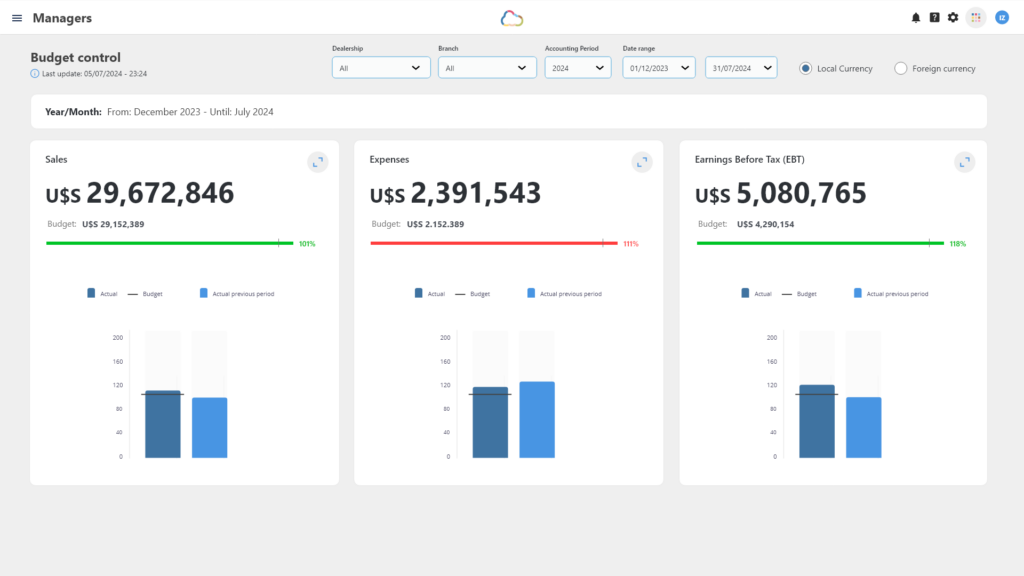With growing concern, you turn to your spreadsheets for answers. The numbers seem tangled, and every figure raises more questions than it solves. Where did the budget go off track? Why are expenses so high? Are we still solvent? As you sift through the data, you realize that the information isn’t as accessible as you thought.

A lack of clear information is relatively harmless when everything is going well, but it becomes critical when the numbers don’t add up, and you need to uncover trends and pinpoint issues.
Peace of Mind Through Clarity
If someone asked you to identify the single most significant expense in your commercial department—excluding salaries—without consulting anyone, could you do it? If not, this is a challenge (or an opportunity, depending on your perspective) that needs addressing.
A data-driven routine means having the confidence and clarity to know what’s happening in every department of your dealership. It allows you to take control, address issues promptly, spot opportunities through patterns, uncover weaknesses, and identify which location or dealership in the group is delivering the best results.
The true time-waster, and source of frustration, is having to dive into dozens of spreadsheets and tabs just to find the basic information you need to identify areas for improvement.
Data in Action: The Case for Budget Control
At Auto.Tienda, a leading Latin American automotive event, we recently introduced the concept of a “data-driven routine,” a new way for dealership managers and principals to start their day: with up-to-date, reliable, and actionable information, free from intermediaries and data discrepancies.
This concept rests on a key feature of Autologica: Analytics,the evolutionary step within Autologica Sky DMS that transforms every departmental action into organized dashboards packed with goals, data (both current and historical), and trends.
These tools are indispensable when asking questions like… what budget was allocated to each department? How much of the budget has already been spent? What were the sales projections, and how are we performing month by month?
“Now, I can review detailed budgets for every department whenever I want. Previously, I had to request reports and cross-reference data, which was incredibly time-consuming.” This sentiment is commonly shared by managers who have embraced these solutions.

Crisis or Controlled Problem?
Knowing the health of your business and of each department by managing budgets effectively and monitoring metrics daily transforms potential problems into opportunities for improvement. Otherwise, you risk falling into self-deception: assuming everything is fine and always will be.
The question is… what kind of management do you prefer? The reassurance of identifying problems early? Or the thrill of tackling critical situations as they arise?


